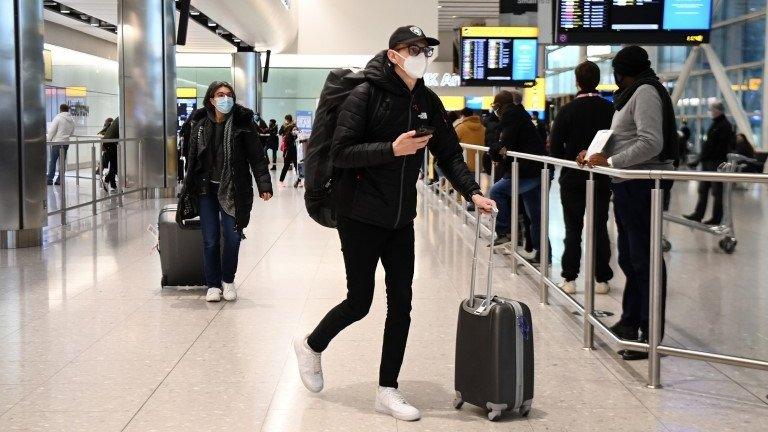Covid-19: People in South African variant test areas urged to 'think twice'
- Published
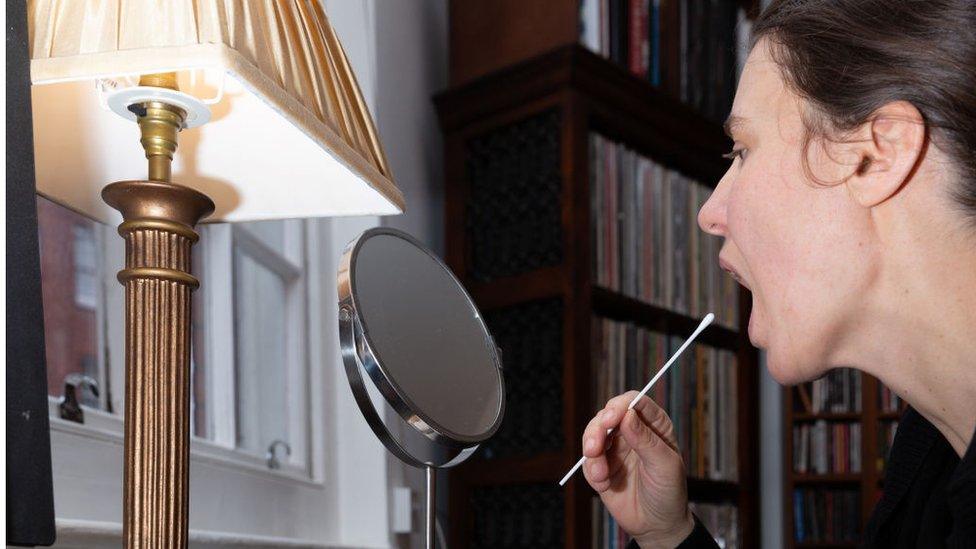
Home testing kits will be delivered to tens of thousands of people in England
People in areas that have been singled out for enhanced testing for the South African variant should further limit the time they spend away from home, a minister has said.
Universities minister Michelle Donelan said those affected should be "thinking twice about their actions".
On-the-spot doorstep tests, home testing kits and mobile testing units will be deployed in eight areas.
The health secretary said he wanted to "come down hard" on the variant.
It follows fears that the more infectious version may be spreading in communities in England.
Ms Donelan told BBC Breakfast that people in the targeted areas should be having a "conversation with their employer about making sure that they can work from home" and "limiting even more the time that they are outside of their house".
The enhanced testing programme aims to reach 80,000 people.
Matt Hancock, the health secretary, urged everyone over 16 in the targeted areas to take up the offer of a test whether they have symptoms or not - and even if they have been vaccinated.
Speaking in the House of Commons, he said anyone who had not been contacted and was unsure whether they should have a test should find out via their local authority's website.
Gene sequencing has so far uncovered 105 cases of the variant, which - like the variant previously discovered in Kent - is thought to be more contagious although not more deadly.
Eleven of the cases of the South African variant had no link to foreign travel, prompting concerns it is spreading in the community.
Dr Susan Hopkins from Public Health England said the existing vaccines may offer less protection against the South African variant, although they still offer a good level of immunity.
The "surge testing" will, external affect people living and working in these areas linked to cases of the variant:
Parts of the W7 and W13 postcode areas, external in Hanwell and West Ealing in west London
Parts of the ME15 postcode area, external in Kent
Parts of the WS2 postcode area, external in Walsall in the West Midlands
Parts of the GU21 postcode area, external in Woking, Surrey
Parts of the PR9 postcode area, external in Southport
The CR4 postcode area, external around Pollards Hill in south London
Tottenham Hale in the N17 postcode area, external of north London
The EN10 postcode area, external in Broxbourne
In most of the areas, home testing kits are being delivered and collected, while some are also providing mobile testing sites. The tests will be PCR ones, which involve swabbing the nose or throat and are regarded as the most reliable.
Mr Hancock also said it was "imperative" that people in these areas "only leave home where it is absolutely essential".
Tom Casson, who lives in Hackbridge in south London, said he was concerned about the "handling" of the new testing programme in his area.
"There has been no direct contact with us," he told the BBC. "People want to help. But tell them what to do and how they can help. How can they go to the shops? How can they get tested? How will the home testing work?"

'Why not test all the postcode?'
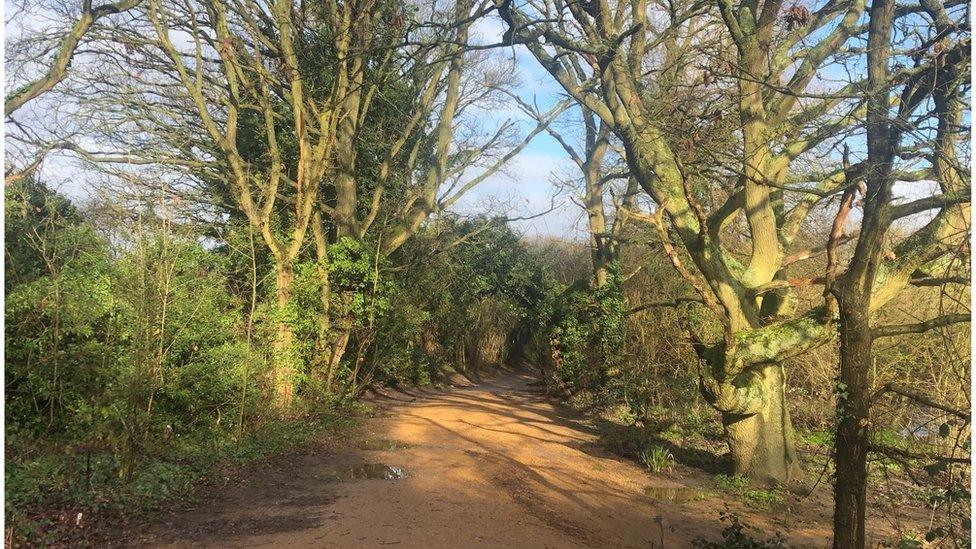
People are giving each other more space than usual in Hanwell - parts of which have been singled out for "surge testing"
By Suzanne Leigh, BBC News
Hanwell, W7, is, arguably, one of London's best kept secrets. There's a village-like feel in parts and a carnival, free music festival, a zoo - all either cancelled or closed at the moment, of course.
But still open are the wide spaces of parkland. The River Brent and Grand Union canal thread through and the area is a haven for wildlife. Red kites can regularly be seen hovering over the golf course; herons and an egret are a frequent sight and if you're really lucky you'll spot a water rail or kingfisher. Bats nestle under the viaduct, anecdotally a favourite spot of Queen Victoria's - she would request that her train would pause there so she could admire the view.
It's a bit quieter than usual this morning. People are noticeably giving each other more space and the only hubbub is around the newly opened vaccination centre at the church hall.
But there's also confusion. Why not test all the postcode? Why aren't there more test appointments?
There are roads split between those deemed to be in the danger zone and those outside it. How does that work?

In December, the discovery of the new strain prompted a ban on foreign nationals travelling into the UK from South Africa and later from southern African countries.
Under current restrictions, people arriving into England from anywhere outside the UK, Ireland, the Channel Islands or the Isle of Man need to isolate at home for 10 days and provide a negative Covid test result before travel.
A new system of quarantine, external requiring those arriving from countries under travel bans to isolate in hotels is due to be introduced in the coming weeks.
Labour, however, wants the government to go further and introduce a hotel quarantine system for all UK arrivals.
On Monday, the House of Commons voted 262-0 in favour of a non-binding motion to introduce such a system. All Conservative MPs abstained.
Labour's shadow home secretary Nick Thomas-Symonds accused the government of being "irresponsible" not to back the motion.
"We have to do everything we can" to protect against "mutations emerging elsewhere", he told BBC Radio 4's Today programme.


Completely stopping the spread of the South African variant is probably not realistic.
For one thing, these 11 cases have only been spotted by random checks on 5-10% of all positive cases. There are bound to be more.
So why the testing blitz? It's because of the delicate position we're in.
Vaccination is being rolled out quickly and many vulnerable people are building up immunity.
Anything that interferes with that will have significant consequences - so even just slowing the spread will be really beneficial.
But once vaccination is complete and there is significant immunity across the population, the impact of mutations becomes much more diluted.
This is why maximum vigilance is needed now, but in the long-term we can still be confident we can get on top of this pandemic.
Viruses mutate, but coronaviruses - certainly compared to the flu, which sees different strains circulating every year - tend to be relatively stable.
So, even with the mutations we are seeing, the vaccines still offer a very good degree of protection - even if that protection is not quite as high as it was against the original form of the virus.
What's more, it is relatively straightforward with this generation of vaccines to re-engineer them to work better against the mutations that have been seen.

It is expected that Scotland's First Minister Nicola Sturgeon will outline tougher supervised quarantine measures later.
It comes amid growing concern in Scotland that it is lagging behind England in its vaccination programme.
UK minister Ms Donelan said Ms Sturgeon's proposal of a "blanket policy" on quarantining all arrivals would be "unfeasible" and "not necessarily effective". She said the UK government's strategy had to be "targeted and deliverable".
Mr Hancock would update the House of Commons about hotel quarantine for arrivals from some countries "within the week", she said, adding that 30 countries have been identified.
According to the Times,, external the government's Scientific Advisory Group for Emergencies (Sage) warned Downing Street that only closing the borders or introducing mandatory quarantine for all would stop new variants entering the UK.
A government source told the BBC the report was "not accurate" and that the prime minister "was not advised to stop all travel".
Prof Calum Semple, a member of Sage, told the Today programme a "significant reduction in the movement of people" was "incredibly important" in order to "snuff out" the South African variant, but it was not practical to close the UK's borders completely.
"You can't do it altogether when you have got a country that is dependent on imports for food and other essential processes. It is just not possible," he said.
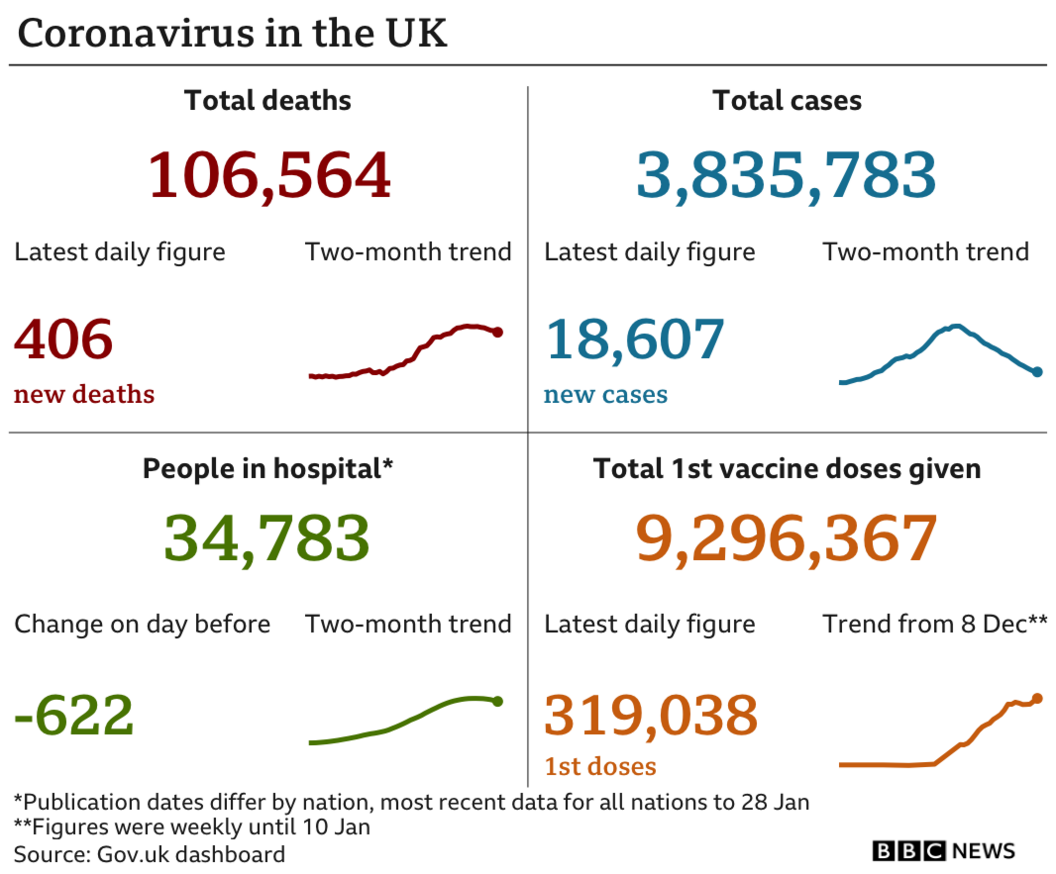
Meanwhile, scientists have said that the variant discovered in Kent appears to be undergoing some genetic changes already seen in the South African and Brazilian variants.
The latest analysis of death certificates by the UK's national statistical agencies shows more than 9,000 deaths in the week ending 22 January were linked to Covid.
It is a rise of nearly 1,300 on the week before and the second highest weekly figure since the pandemic began.
It means 44% of all the deaths recorded in the week were linked to Covid and brings the total number of deaths during the pandemic by this measure - based on mentions on the death certificate - to nearly 113,000.
However, these figures lag behind the government's daily deaths data, which counts people who have died within 28 days of testing positive.
On Monday, the government's coronavirus dashboard recorded a further 406 deaths and 18,607 new confirmed cases. Overall, that data has started to suggest the rise in deaths is levelling off.

NEW VARIANTS: How worried should we be?
VACCINE: When will I get the jab?
LOCKDOWN TIPS: Five ways to stay positive
TEST AND TRACE: How does it work?

Government data also shows 9,296,367 first doses of the vaccine have now been given, with almost half of people in their 70s given a jab and almost 90% of over-80s.
Mr Hancock told MPs: "That we find ourselves in this position is no accident.
"Our strategy has been to invest early and invest at risk. We backed many horses, no matter where they're from, and we've also built up our vaccine manufacturing capability here at home."
Dr Hopkins said laboratory studies were being carried out to provide further evidence of the vaccines' effectiveness against new variants.
The three vaccines approved so far - Pfizer-BioNTech, Oxford-AstraZeneca and Moderna - all showed effectiveness against the South Africa variant that was higher than the minimum standard set by the World Health Organization and the US Food and Drug Administration, she said.
She said she expected other vaccines to have similar levels of effectiveness against the variant, particularly in reducing serious illness and deaths from the virus.

CHINA AND THE PANDEMIC: The gulf between what Chinese officials knew and what they told the world...
FOOTBALL, RACISM AND ME: Anton Ferdinand explores racism in the game from a personal perspective

- Published2 February 2021
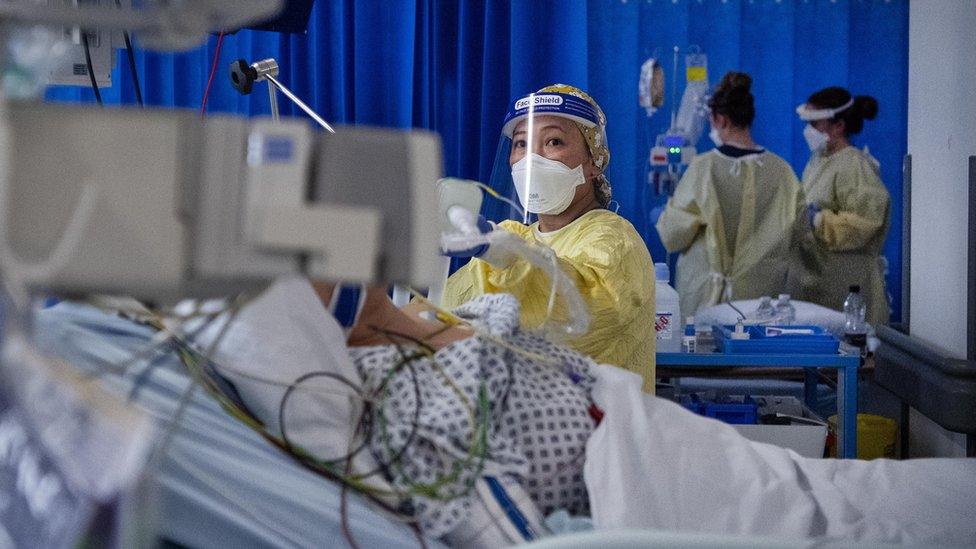
- Published2 February 2021
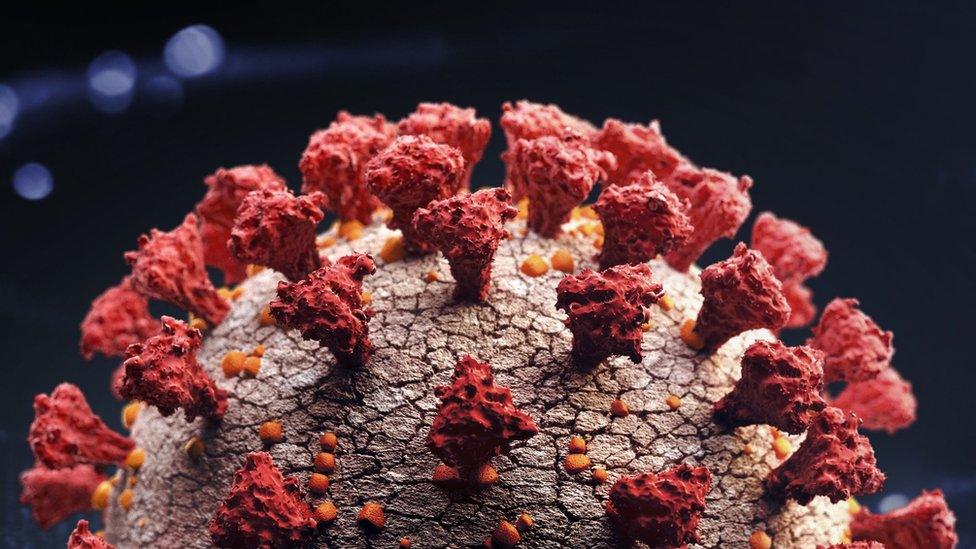
- Published2 February 2021
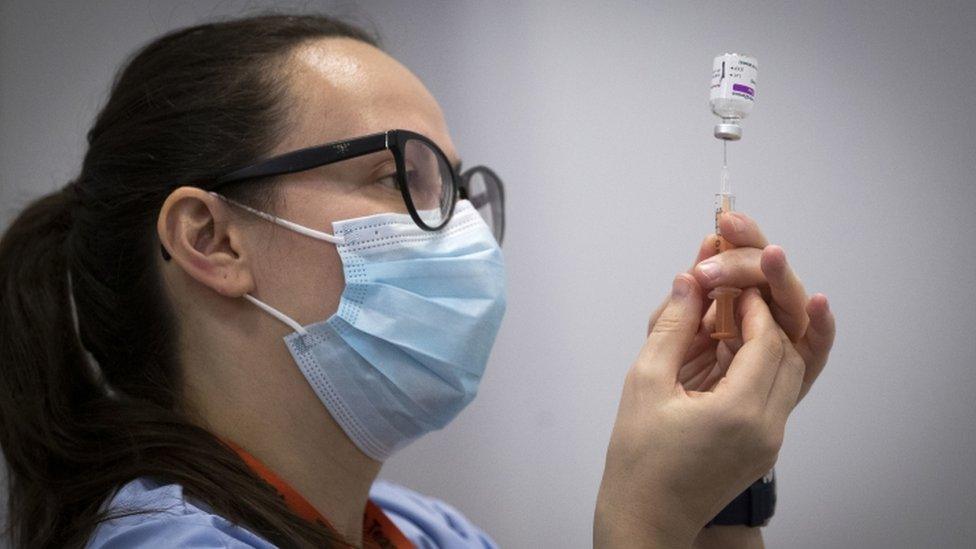
- Published22 January 2021
- Published4 March 2022
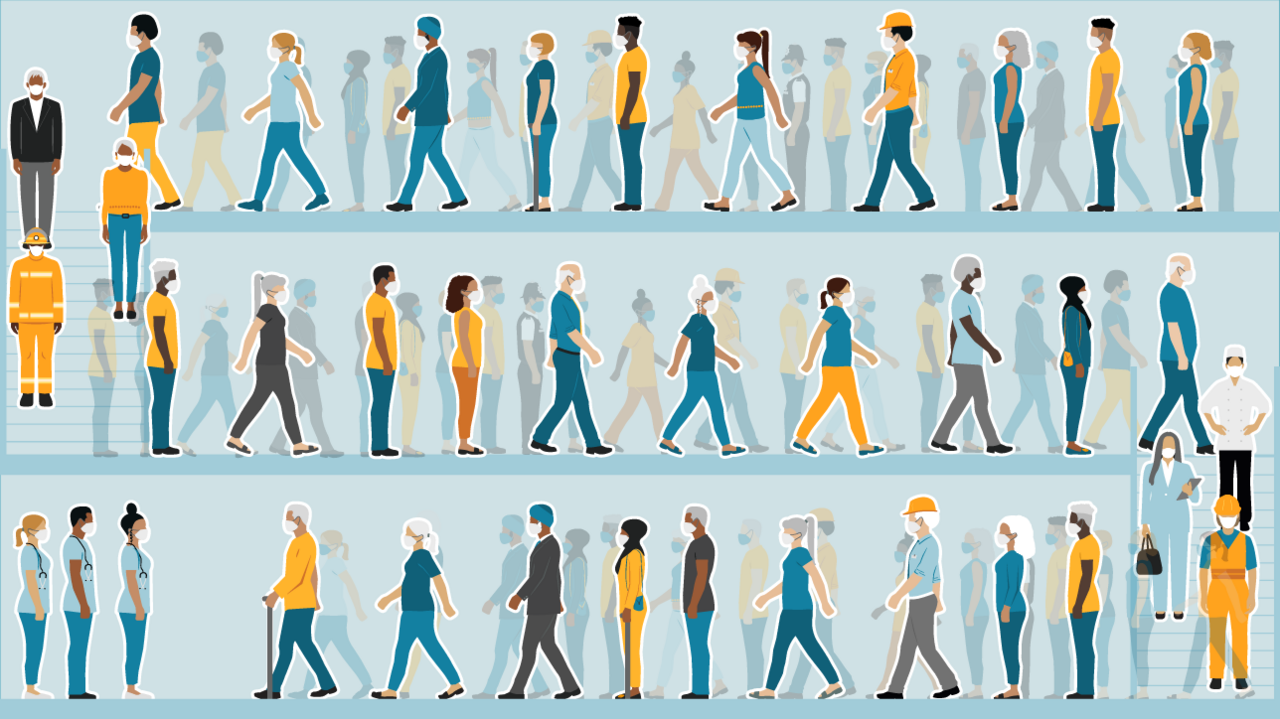
- Published22 January 2021
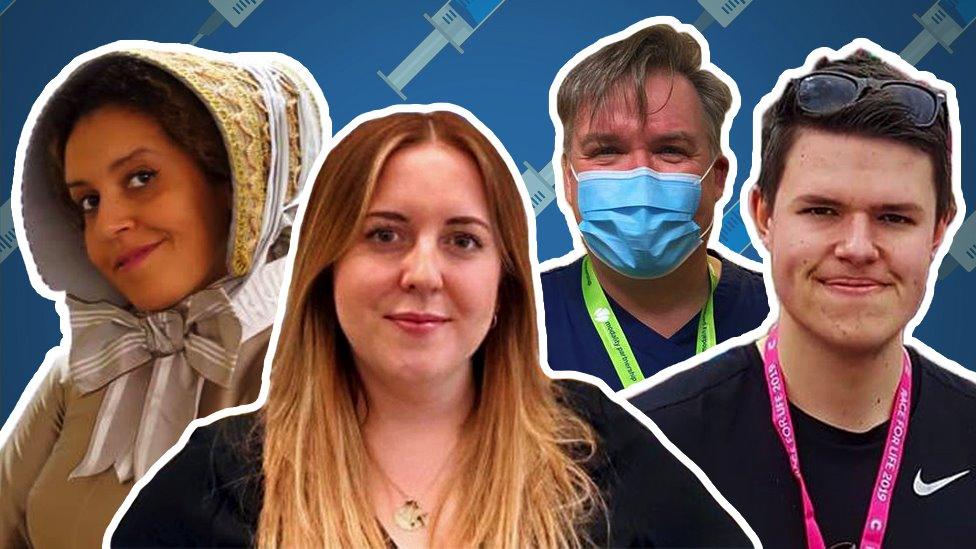
- Published18 January 2021
